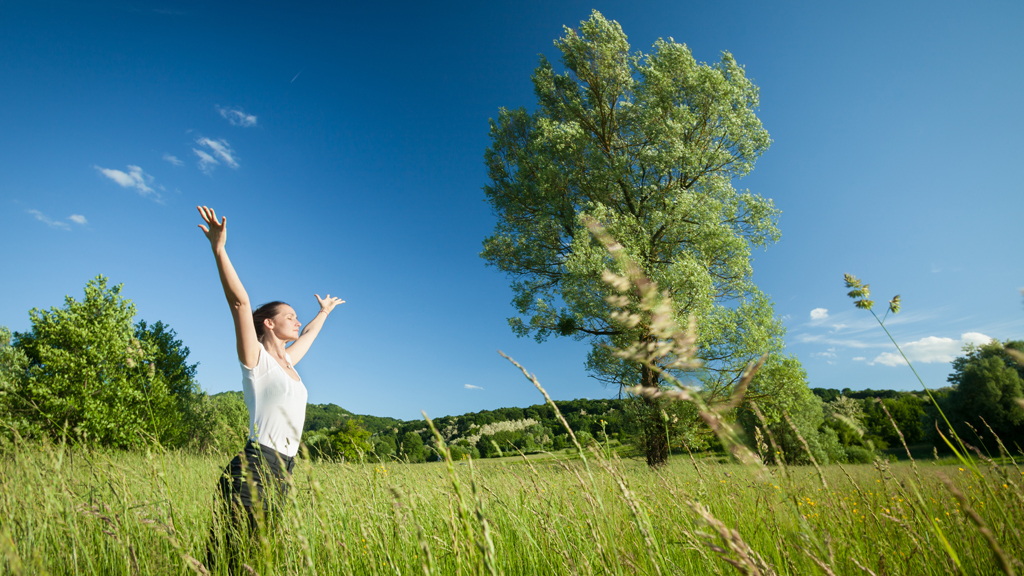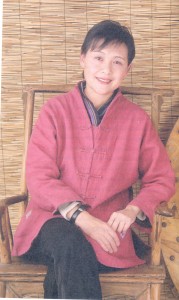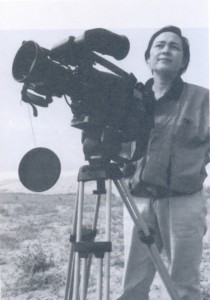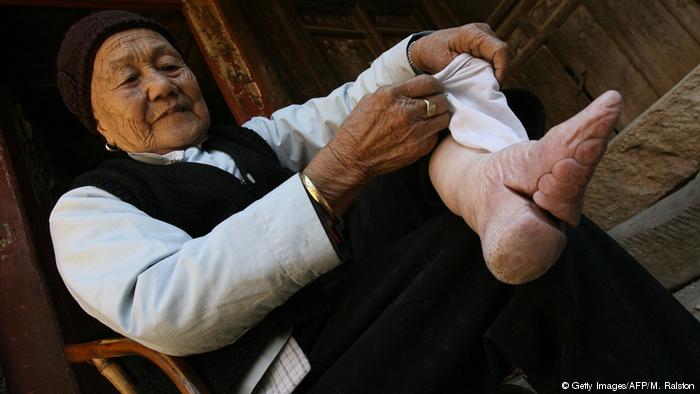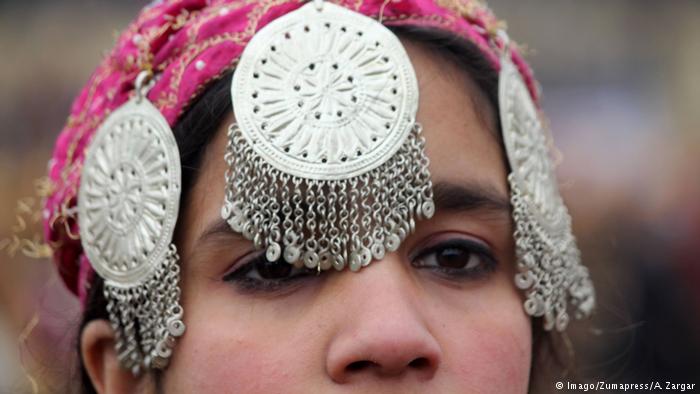China’s 26-Centigrade Lady Supports A Green Lifestyle
In the early 1990s, Liao Xiaoyi saw the important role played by NGOs in environmental protection in the United States, but she also found problems with the American lifestyle. “During the winter months, the AC temperature in malls and department stores was so high that people had to wear summer clothes, while during the summer months, it was so cold indoors that people had to take thick clothes with them. The weather in the state of California is sunny, but there was a law against airing clothes within your own courtyard, so that people have to use a drying machine; otherwise they would be fined USD 50. I believe our earth cannot sustain this kind of wasteful lifestyle.”
She also saw a fashionable girl queuing at a recycling plant to have her sorted trash disposed of, claiming herself to an environmentalist. But inside her bag, the clothes and items were so new and fancy that you would think they were just bought from boutique store. “I saw that the girl was working hard and spending a lot of money after work, and then she had all the items she bought recycled. I would say that her entire life revolved around consumption.” For Liao, this over-consumptive lifestyle is, in fact, contrary to the real meaning and purpose of environmental protection.
Behind the clear blue sky and clear waters of the United States there is another hidden side of the country: it is a country whose population is only one-fifth that of China and whose resource consumption per capita is five times greater that of China. It does everything it can to obtain limited resources from all over the world, and being the country with most greenhouse emissions, it is not willing to sign the Kyoto Protocol (a set of supplementary provisions signed by contracting parties of the United Nations Framework Convention on Climate Change).
And what worries Liao Xiaoyi even more is that an increasing number of Chinese people are living like the Americans: owning and driving cars, enjoying the cold temperature during the summer, consuming wildlife and consuming immoderately. “From then on I began to think about what kind of lifestyle is in harmony with the nature. I wanted to come back to China and try to find the solution in the centuries-old wisdom of my own country.”
“Five Rs”
In 1996, for the first time, Liao Xiaoyi proposed the concept of “green lifestyle” in the special column co-edited by GVB and China Women News. Liao Xiaoyi tried to expand the “Three Rs” (Reduce, Reuse and Recycle), a concept then popular in the Western world, into “Five Rs”: Reduce (the consumption of resources and pollution), Reevaluate (whether our purchases are environment-friendly), Reuse (resources and materials), Recycle (meaning trash sorting and recycling) and Rescue (endangered species of the earth).
In 1998, Liao Xiaoyi compiled a Citizen’s Code of Conduct of Environmental Protection and Children’s Code of Conduct of Environmental Protection, the first guide of “green lifestyle” co-revised by the State Environmental Protection Administration of China and Global village of Beijing and printed on recycled paper. In 1999, GVB cooperated with the government of Xuanwu District of Beijing and established China’s first pilot “green community”, the start of Liao Xiaoyi’s realization of her own concept of “green lifestyle” in China.
Since then Liao Xiaoyi has been travelling all over the country, spreading her concept of “green lifestyle” through theoretical research, media campaigns and training sessions, and establishing “green communities”, organizing various environmental protection activities to raise citizens’ awareness of environmental protection, including trash sorting, communications at the grassroots level, and advocating a “green Olympic Games”. In all those activities and conferences, Liao Xiaoyi appeared as a scholar-practitioner with her unique style: she tried to explore the eco-friendly cultural ideas through her own practice of environmental education, and meanwhile, she has found an easy type of communication that is geared to making environmental education appeal to a mass audience.
Environment-Aware living habits
Liao Xiaoyi’s own lifestyle is extremely environmentally aware. There are a number of large and small plastic basins at her home, in which she deposits water to wash clothes and vegetables, and the water will then be used to flush the toilet and mop the floor. She even thinks we should only have one shower per week in order to save water. When having to eat in the restaurant, she brings her own chopsticks to avoid using disposable chopsticks offered by the restaurant. She rides bicycle to work and tries to avoid air travel on her business trips.
She does not use air conditioning in her home and office, and she is nicknamed “the 26-Centigrade Lady” by her foreign friends for advocating the energy-saving movement of “setting air-conditioning at no lower than 26 degrees C [79 degrees F] in the summer and not higher than 20 degrees C [68 degrees F] in the winter.” When faced with critical comments about her views, Liao Xiaoyi feels quite sad and ridiculous. She does not think her living style means rejecting modern technological progress; Instead, what she is doing is to arouse people’s love of nature and promote sustainable development that pays attention to the preserving the natural environment.
Environmental education in China
In summer 1998, when President of the United States, Bill Clinton, visited China, he held a round table with seven environmental activists representing civil society in China in a Chinese-style pavilion at Seven-Star Cave of Guilin, Guangxi Zhuang Autonomous Region. As the only female representative at the meeting, Liao Xiaoyi did not follow any of the usual conventions and addressed the President directly: ”The environmental education we are trying to promote here in China is to dissuade Chinese people from copying the bad living habits of you American people: too many private cars, too much air conditioning and too many disposable items.” Liao Xiaoyi continued to talk about the effects of excessive exploitation, energy consumption, harmful waste production, ecological destruction and excessive consumption in the United States. President Clinton agreed.
In the spring and autumn of 2003, Liao Xiaoyi visited a number of places during her holidays, including Chenjiagou Village, Wen County of Henan Province and Gubeikou Township of Miyun County, and it became increasingly clear to her that “it is high time for us to return to the countryside, whether for individuals or for the entire society, to find the core truth of life and to develop human civilization. Let the countryside lead people in the cities back to where one can re-establish a relationship with the earth and the sunshine, and find oneself truly alive. This not to say that we cannot find the core truth of life in an urban context, but that it is far less effective to do so in a place surrounded by cement and steels and full of man-made items.”
(Excerpts from A Fragrant Path of Thorns: Chinese Women in the Past Century, Compiled by Mei Yubing; Translated by Concordancy; Published by New Star Press; Pp: 278)
From Women’s Feature Service
Editor: Marjory Linardy
WTO RECOMMENDS
A responsible citizen
Electronic waste is a menace all over the world. We keep hoarding new gadgets and don’t know how to safely dispose the old and faulty ones. Unknowingly, toxic elements in the gadgets like lead, mercury and nickel add up to the levels of environmental pollution. (From October 9, 2012)
Sport the eco-friendly trend
You’ve given up using plastic bags and turned towards solar power to save the Earth. So here are some new green ideas for your wardrobe. Eco-friendly fashion is in. (From June 26, 2012)
Eco-friendly is as eco-friendly does
We all love style and comfort. Be it our small office desk or at home, eco-friendly products add that much needed punch to mundane living. So bring out the eco warrior within you and make serious efforts to reduce
your carbon footprint. Wondering how to go about it? No worries, here are some suggestions. (From June 21, 2012)



